For about a minute, it seemed we had this waste thing figured out. A reusable mug for takeaway coffee. A cupboard full of cloth shopping bags. Glass jars to refill quinoa and maple syrup at the nearest bulk store. Then COVID-19 hit.
Now, if we want to support a local café, we have to accept that plastic-lined cup. Many grocery stores, citing pandemic safety, make us use their fresh plastic bags. Restaurants survive by selling takeout food — delivered in single-use packaging. And wherever the battle against the coronavirus rages, mountains of masks, gloves and other PPE pile up.
It’s easy to forget the waste-busting momentum Vancouver had mere months ago.
On Jan. 1, foam cups and takeout containers were banned under the city’s single-use reduction strategy. Disposable utensils and plastic straws (except those reserved for people with disabilities) were set to be phased out starting April 22. By early 2021, businesses were meant to have ditched plastic bags and started charging for paper ones as well as single-use cups.
The federal government wasn’t far behind. Canada released a draft scientific report on plastic pollution in January, which points to packaging as the largest source of plastic waste in the country. Trudeau announced his intention to ban harmful single-use plastics by 2021. But COVID-19 stalled enforcement and timelines.
“We’re not going to put businesses at a disadvantage by enforcing [single-use bans] at this time,” said Albert Shamess, director of waste management for the City of Vancouver. “At the end of the day, we’ll rely on advice from the health authorities.”
Hard to argue with that. But, if the new normal is disposable, what does that mean for waste, recycling and pollution going forward? Could there be a better way to keep the city safe, fed and on track for reduction goals?
My journey to answer such questions took me from the city dump and recycling centres to the vegan cafes of Main Street. I met business owners allowing reusable containers, delivering groceries by bike, and reinventing packaging altogether. I ended up in a place far from where I started. COVID-19 might just be the wake-up call to create a more circular local economy.
A new ‘monster disposable society’?
I started at a neighbourhood haunt: Memphis Blues on Commercial Drive. One of the owners, George Siu, was working behind the counter, packing a barbecue takeout platter for Uber Eats.
“This is a Memphis Feast which feeds three to four people,” Siu said. He named each component as he placed it in packaging: fries in a cardboard box; cornbread wrapped in foil; coleslaw, potato salad, hot sauce, barbecue sauce and beans — each in their own plastic container.
“This aluminum tray is where all the barbecue meat goes,” Siu continued. “Before you even put this lid on, you Saran it to keep the heat in. And then you have the paper bag. So you can see the amount of packaging for just one order.”
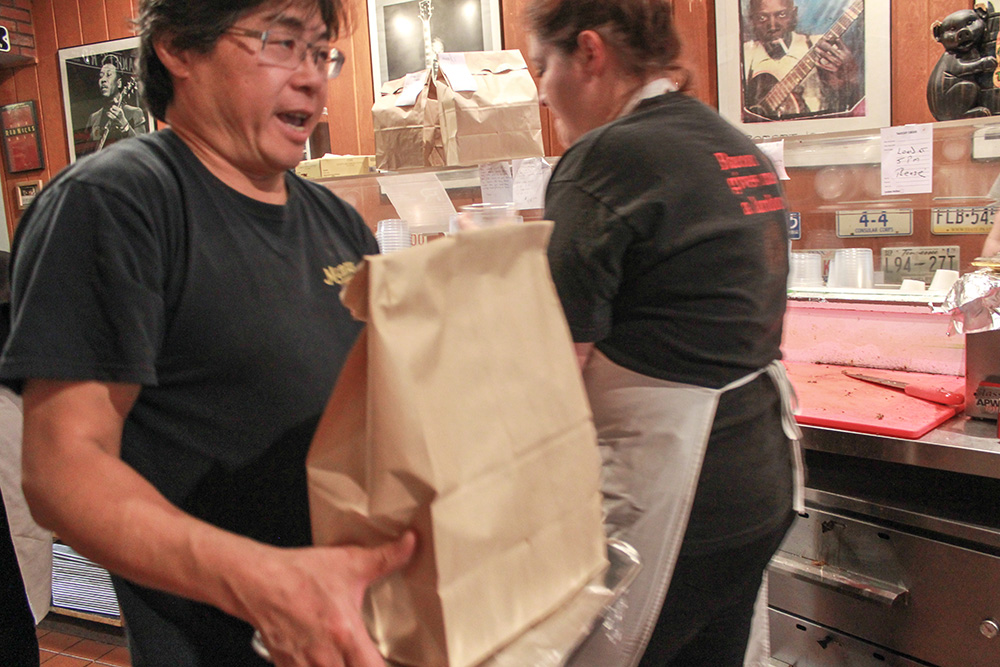
Siu said he’s been going through about 40 per cent more packaging since his restaurant closed to dine-in service on March 16. Before the pandemic, takeout containers and disposable cups already made up half of all garbage collected from public waste bins. The new focus on takeout gives reason to believe packaging is on the rise, at least in our homes.
“This is creating a monster disposable society,” Siu said. “We’re all talking about making less waste, but it’s impossible. The entire world’s doing this right now. Can you imagine how much garbage we’ve produced?”
I couldn’t, so I called Albert Shamess from the city for help. Shamess confirmed that residential garbage and green waste has gone up, which he credits to earlier spring cleaning and gardening this year in addition to more people being home.
In April, the city collected 3,500 tonnes of garbage from single-family residences. That’s a 28 per cent jump from April 2019. But when factoring in commercial loads, which have lightened with so many businesses shuttered, total waste was actually down 10 per cent in April, according to Metro Vancouver.
While Recycle BC doesn’t release its figures until after they’re audited by a third party, a recent study in Renewable and Sustainable Energy Reviews estimated a 40 per cent rise in packaging worldwide, due to the growing demand for takeout meals and grocery delivery.
Alberta petrochemical companies — which make the oil-based compounds that go into a variety of plastic products — are also booming. Even before COVID-19, the declining oil and gas industry was looking to plastic as a lifeline. In the U.S., the plastic industry has been exploiting the pandemic to try to roll back plastic bag bans and other efforts to curb pollution.
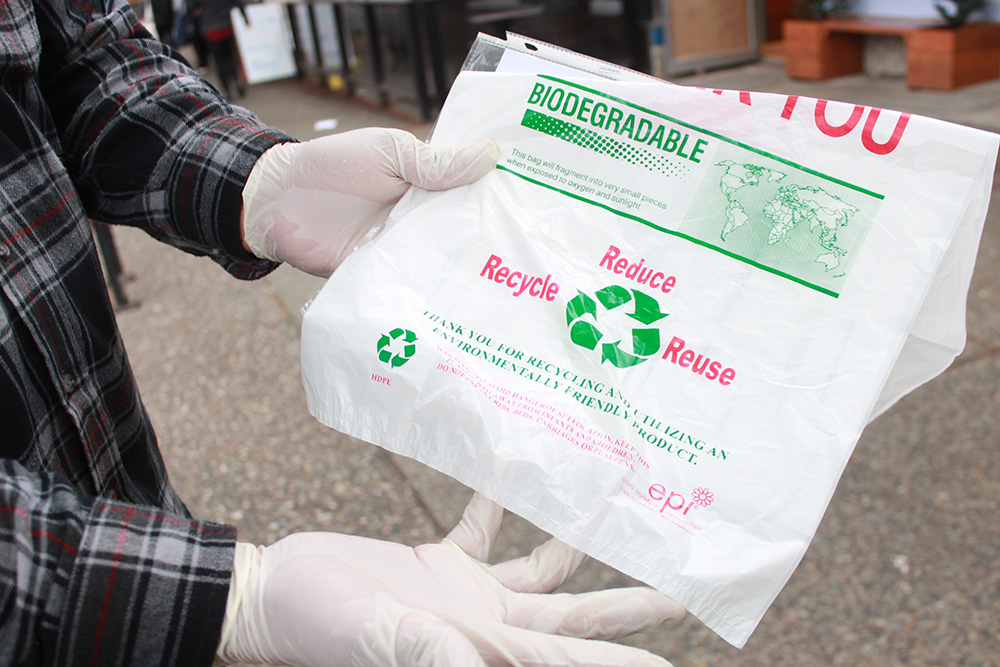
“The plastic industry is sticking to the talking points that they used well before COVID and will use long after COVID: that plastic is the most hygienic choice, we need plastic, COVID proves we need plastic,” said Sarah King, head of Greenpeace Canada’s plastic and oceans campaign. “But those claims are not based in science.”
A growing body of research has found that plastic is one of the surfaces the novel coronavirus can live on longest, versus porous materials like cloth and paper that have lower retention. The transmission via any surface is also considered low-risk. But the perception that disposable is safer has shaped guidelines from the B.C. Ministry of Health that require businesses to provide single-use packaging for takeout, and which forbid customers from using their own containers for meals or groceries.
Bringing back the milk man model
To investigate the container rule, I headed to the Soap Dispensary on Main Street, Vancouver’s first refill store, which stocks specialty soaps, cleaners, personal care products and groceries — all in bulk. I thought the owner, Linh Truong, would know if we really need single-use packaging to survive a pandemic. After all, her entire business was built on refilling containers.
On the Friday afternoon of my visit, a few 30-somethings waited outside next to upside-down plastic pails, set six feet apart on the sidewalk for social distancing. That was about the last plastic I saw.
Inside, along a wall of reusable tiffins, compostable scrubbers and wooden spoons, cardboard boxes were overflowing with individual rolls of toilet paper, dry goods stapled into paper bags, and glass jars of coloured oils, soaps and drinks — online orders waiting for pickup.
On the opposite counter, where customers used to check out, employees read orders off a tablet to build the tailor-made boxes. “Since our online orders started, I have never seen that counter clear,” Truong said through a face mask patterned with fortune cookie shapes.
In the scary days following B.C.’s declaration of a public health emergency, Truong had to figure out how to keep her business alive without the foot traffic or weekend lineups she’d come to rely on since opening in 2011. Then came the container ban. She thought for sure she’d have to close.
“That’s the whole point of running a zero-waste business,” Truong said. “But we also offer essential products like soaps, sanitizers and rubbing alcohol and felt this real need to stay open for our customers.”
During a deep clean of the entire store, down to the door knobs, Truong had an idea. She could follow existing models like Earnest Ice Cream and Avalon milk that offer products in glass jars and bottles, which customers buy and return for a $1 deposit. Truong was already doing that for bulk yogurt, which stores are not allowed to refill. She’d just have to scale up and reinforce her sanitation.
Fast forward and Truong has purchased nearly 10,000 glass jars in three different sizes, plus another 10,000 paper bags, most of which are made from 100 per cent recycled paper. She also bought a high-temperature dishwasher on the advice of Vancouver Coastal Health, which approved her new system but said to consider all incoming jars “contaminated.” Truong has invested nearly $15,000 to keep her business open, and as low-waste as possible. Luckily, her sales have bounced back.
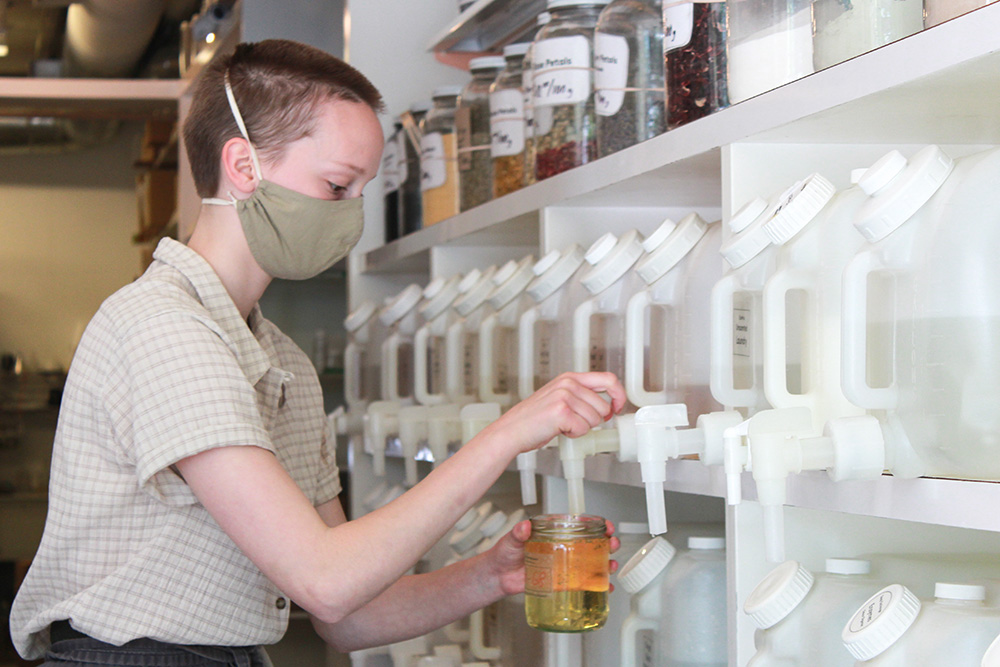
Of course, paper bags — which she used to hide behind the counter — are worse than plastic when it comes to energy and resource use. But the fact that they biodegrade, are recycled into new paper and don’t hurt wildlife make them “the lesser of evils” in Truong’s mind. Plus, it just wasn’t feasible to package everything in glass, especially now that she’s doing door deliveries along with store pickups.
Truong said she was hesitant to do deliveries, not only because she drives a 20-year-old Aerostar van that spews fumes, but because she didn’t want to join the “culture of convenience” responsible for so much waste and pollution.
“But during COVID, we were forced to try it out, and I think there are definitely benefits,” Truong said. “Maybe we can innovate and, you know, one day buy an electric van for deliveries. That would be a dream.”
‘It’s not rocket science; it’s just political will’
A ten-minute walk up Main Street, I found another business that’s continued to reduce waste while also keeping safe.
Kind Cafe, which opened in August 2019, is a vegan eatery that’s offered jar and container deposits since day one. If you order an iced latte or a green smoothie, you can get it in an eight or 16-ounce jar, which tacks on a $1 or $2 deposit fee that you get back on return.
Takeout bagels, wraps and salad bowls come in reusable Tupperware with a $4 deposit — “the price point in which people really wanted their money back,” said Samantha Emerman, who owns the café with her father.
Despite the COVID container rule, Kind Cafe has continued to allow people to bring in their own mugs and dishes, too. They just have to transfer the drink or food from a café container themselves so employees don’t have to. Once they’re done, they drop the transport container in a dirty bin for sanitizing out back.
“The health authority is okay with people transferring their own food; they’re just not okay with us bringing the cups and containers past the counter into the kitchen,” Emerman said.
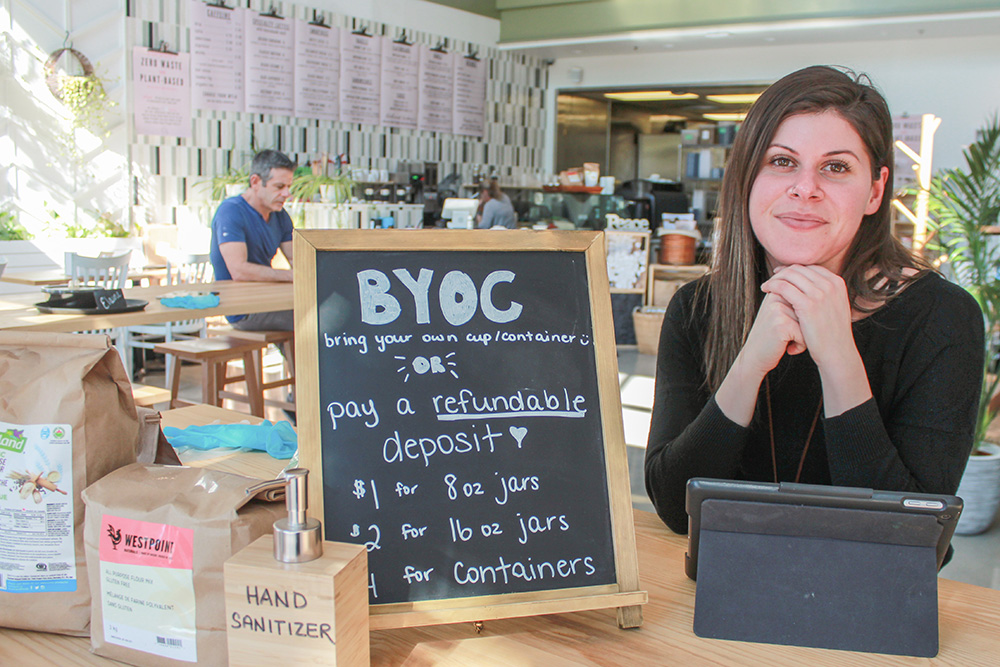
But shifting the onus away from customers and on to governments and businesses is the only real way to change supply chains, said Jamie Kaminski, who runs the recycling depot and education center HSR Zero Waste.
The truth is that health authorities were strict about customer containers long before COVID-19 incited a fear of surface transmission, and only a small minority of people actually brought them in the first place. What’s more is our dismal recycling rates, despite decades-long campaigns, Kaminski added.
Only nine per cent of plastic is recycled in Canada, which roughly mirrors the global rate. The majority is sent to landfill, with a small portion incinerated at places like Burnaby’s waste-to-energy plant. The plastic that is collected and processed is in fact “downcycled” — that is, melted into a base product that requires additional plastic inputs — instead of turned into the same product, as is the case for aluminum cans and glass bottles.
“It boggles my mind that we’re still thinking the solution is to collect materials, destroy those materials and convert them into something that wasn’t the original product,” Kaminski said. A more sane approach would be asking if we can shift our supply chains to accommodate refillables. “That’s the solution when it comes to all this waste.”
Kaminski said he envisions a standardized container offered by many local restaurants for takeaway food or deliveries, which could be returned at multiple depots or picked up at the doorstep.
When I looked into this idea, I learned that Kind Cafe is already researching a mug share program for Main Street. Another company, Gomae Meals, is delivering vegan food from local eateries using reusable containers that the company picks up, sanitizes at partner restaurants and recirculates.
The founders of Gomae recently launched Oco Meals to extend this concept beyond vegan cuisine, but it’s struggled to get new businesses on board with reusables amid the pandemic. Kaminski said having a third party or delivery service own the sanitation process could help to take liability off the restaurants.
“It’s not rocket science,” Kaminski said. “It’s probably just looking back 30 to 40 years into history to see how we used to do it back when we had refillable bottles. It’s just political will.”
Connecting human health back to the environment
Daniel Rotman is an entrepreneur and zero-waste consultant who recently resurrected WeCycle to do Wednesday bike deliveries for the Soap Dispensary.
“COVID was the inspiration for me to start WeCycle up again,” Rotman said. “The whole thing was dormant before COVID catalyzed it.”
I asked whether he thinks some of the sustainable solutions we’re seeing might scale up in the new takeout-and-delivery culture post-pandemic.
“The connection with waste management and health goes back as far as both ever existed,” Rotman said. “We instituted waste management and ‘sanitary landfills,’ as they were first called, because people were dumping their garbage on the street. And that wasn’t healthy for us.”
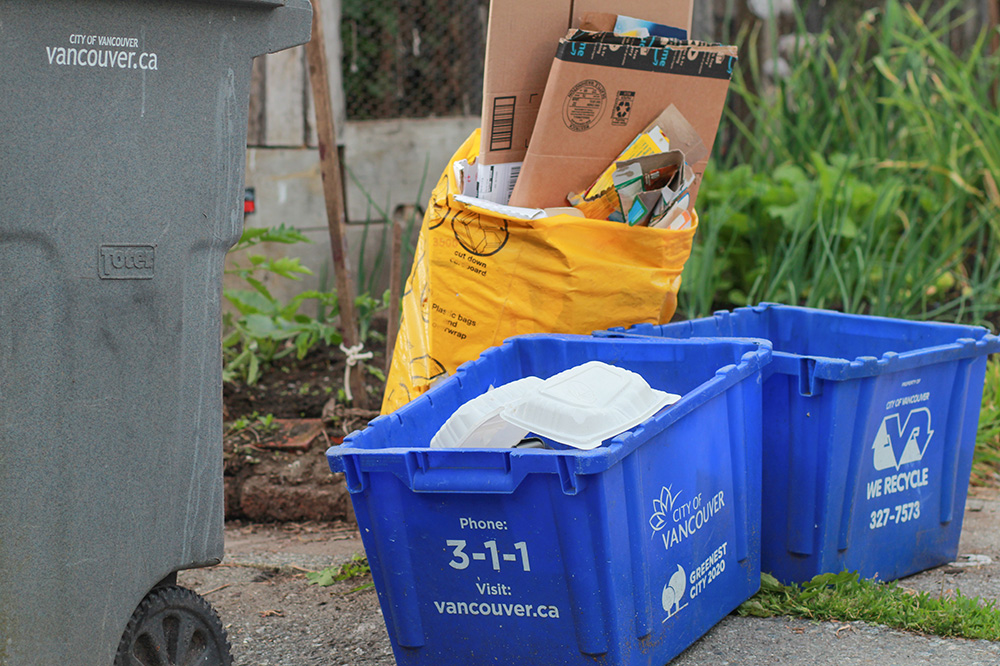
Environmental health and human health are one in the same, he added. “I’m seeing the beginning of that conversation now.”
Through WeCycle, he’s hoping to connect a network of eco-conscious Vancouver businesses on a single online shopping app, and deploy cargo bikes for carbon-free deliveries. He said the “big, hairy audacious goal” would be like a cross between Uber, Amazon and Shift — an existing bike delivery company in Vancouver — but for sustainable shopping and takeout.
“I think we can only really talk about this in a community like Vancouver, because it’s a special place,” Rotman said. “We have a pretty strong bike culture; we have a very environmentally conscious consumer base; and we have a municipal government and city councillors that are all about this.”
I asked about his bike trailer, and I could hear the excitement buzz through the phone. “It’s made entirely out of trash!” he beamed. The trailer started life as a queen bed frame that was too old and squeaky for use. He took it apart and got a friend to help with welding while he built a platform from the wood. After buying a hitch kit — macgyvered from a Thule child carrier — and rubber tires, the zero-emissions trailer was complete. “That thing’s been running for like five years,” he said.
A bike trailer made of waste, delivering deposit jars and paper-bagged groceries to Vancouverites stuck at home.
While this may seem like a small, utopian experiment, bigger players are making similar moves, showing that Rotman’s delivery service, and some of the Vancouver initiatives, might herald a future that’s more reusable and less polluting.
As part of its Climate Pledge to reach net-zero emissions by 2040, Amazon recently purchased 100,000 electric vans, scheduled to start delivering in 2021. Billion-dollar brands from Unilever to Haagen-Dazs have designed sleek refillable containers for Loop — a circular shopping platform by TerraCycle that’s running in several northeastern U.S. states as well as in Paris. A Loop pilot project with Loblaws was set to launch in Toronto this year, before — you guessed it — it was stalled by COVID-19.
A system like this, with sanitation and ease built in, is entirely possible, said HSR Zero Waste’s Jamie Kaminski.
“People are constantly buying from the same places,” he said. “There’s no reason why when someone’s delivering your stuff, they can’t pick up your empties. I think that’s definitely a model for the future.” ![]()
Read more: Local Economy, Food, Environment


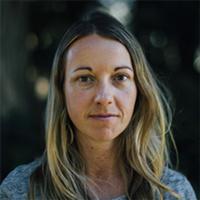
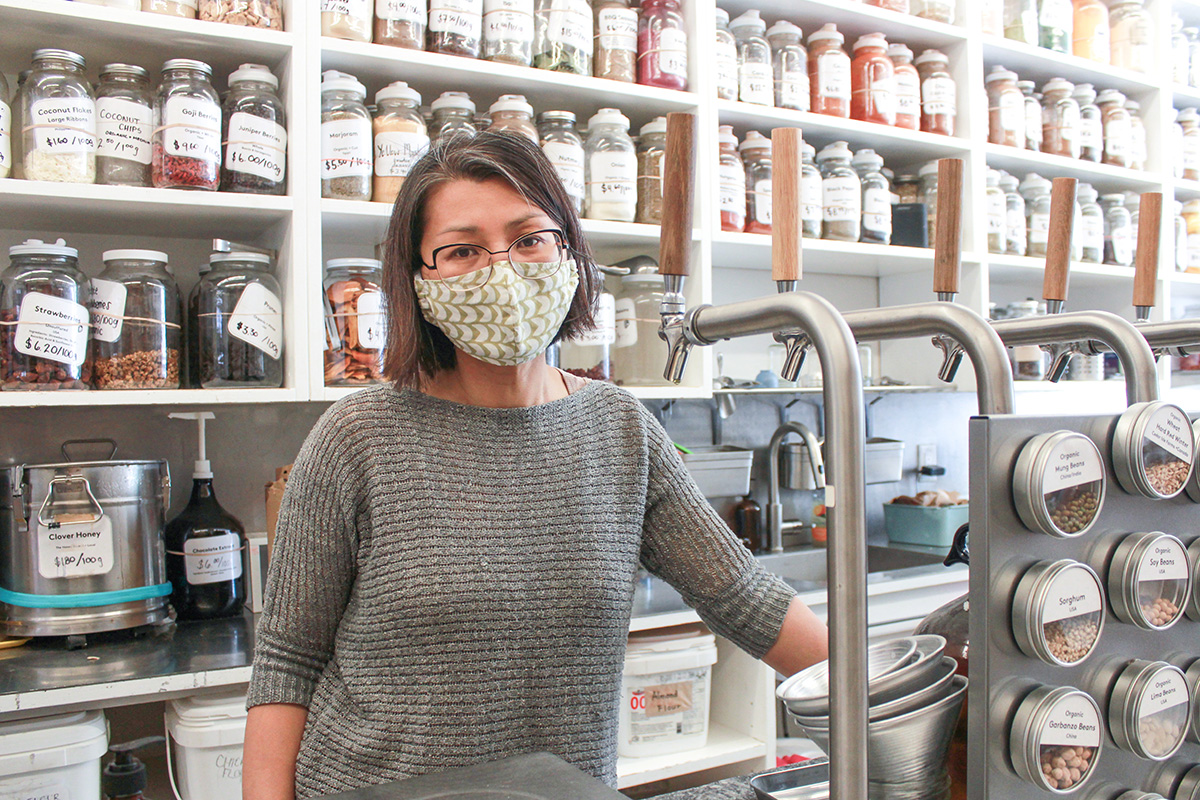












Tyee Commenting Guidelines
Comments that violate guidelines risk being deleted, and violations may result in a temporary or permanent user ban. Maintain the spirit of good conversation to stay in the discussion.
*Please note The Tyee is not a forum for spreading misinformation about COVID-19, denying its existence or minimizing its risk to public health.
Do:
Do not: